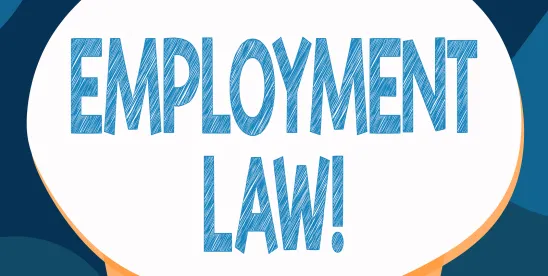Lawmakers in the city and state of New York were busy in 2024 enacting various labor- and employment-related legislation that is already impacting the workplace. The following highlights a selection of important new laws.
Senate Bill S8305C: An Act to Amend the Labor Law in Relation to Providing Paid Prenatal Personal Leave
Beginning January 1, 2025, New York employers will be the first in the United States to be required to provide up to 20 hours of paid prenatal personal leave per year. The paid prenatal personal leave law requires paid leave for health care services received by an employee during and related to pregnancy, including physical examinations, medical procedures, monitoring and testing, and discussions with a health care provider. Paid prenatal personal leave may be taken and paid in hourly increments at the employee’s regular rate of pay or minimum wage, whichever is greater. Paid prenatal personal leave is separate from any other paid sick leave for which an employee may qualify.
Senate Bill S8358C: An Act to Amend the Labor Law in Relation to Requiring Retail Employers to Develop and Implement Programs to Prevent Workplace Violence
On September 4, 2024, Governor Kathy Hochul signed into law a bill requiring retail employers to develop and implement policies and procedures to prevent workplace violence. The law, which will go into effect on March 3, 2025, applies to any person, entity, business, corporation, partnership, limited liability company, or association that employs at least ten employees. Businesses primarily engaged in selling food for consumption on the premises are excluded from coverage under the law. Covered employers are required to adopt a workplace violence prevention policy and training program that must be distributed and presented to employees upon hire and annually thereafter. The law specifies minimum policy and training requirements and provides that the New York Department of Labor will publish a model policy and training program for employers.
The law further provides that effective January 1, 2027, employers with 500 or more retail employees nationwide must either install stationary panic buttons throughout the workplace or provide all employees working at physical locations with a mobile-phone-based or wearable panic button. Employers may not use mobile-phone-based or wearable panic buttons to track employee movements unless activated. The law permits mobile-phone-based panic buttons to be installed only on employer-provided devices. When activated, the panic button must promptly alert the local 9-1-1 emergency service, relay the employee’s location, and dispatch local law enforcement to the workplace.
Senate Bill S8306C: An Act to Amend the Labor Law in Relation to Employees’ Right to Express Breast Milk
This law revises New York’s lactation and breastfeeding accommodation requirements. As of June 19, 2024, covered employers are required to provide paid break time for 30 minutes and permit an employee to use existing paid break or mealtime for time over 30 minutes to express breast milk for the employee’s nursing child. Employees must be provided paid breaks or mealtime whenever the employee has a reasonable need to express breast milk for up to three years following the birth of the child. Employers are prohibited from discriminating against employees who express breast milk in the workplace. Before this amendment, employers were required to provide only reasonable unpaid or paid break time or mealtime for employees to express breast milk.
Senate Bill S8306C: An Act to Amend Sick Leave Requirements for COVID-19 Related Quarantine or Isolation
Effective July 31, 2025, this law will end the pandemic-era paid sick leave requirements that became mandatory in 2020. The COVID-19-related paid sick leave requirements mandated that employers provide paid sick leave and disability and paid family leave benefits to employees subject to mandatory or precautionary quarantine or isolation because of a COVID-19 infection.
Senate Bill S2518A: An Act to Amend the Labor Law in Relation to Prohibiting an Employer from Requesting an Applicant’s or Employee’s Personal Account Credentials
As of March 12, 2024, employers in New York will be barred from requesting, requiring, or coercing an employee or job applicant to provide their username and password to their private social media accounts. Employers are also prohibited from accessing an employee’s social media account using the employee’s login information that the employer acquired in a prohibited manner, reproducing any images or information from the employee’s improperly accessed account, or taking any adverse employment action against any employee or applicant who refuses to provide their social media account credentials.
Employers may require an employee to disclose login credentials for nonpersonal accounts that provide access to the employer’s internal computer or information systems or for accounts provided to the employee for business purposes. Employers may also access electronic communication devices paid for in whole or in part by the employer, but not any personal accounts on such devices. Such electronic communication devices include computers, laptops, and cell phones. Employers are also permitted to take necessary action to comply with a court order, to restrict employee access to certain websites while using the employer’s network and the employer’s devices, and to retain employee communications to comply with federal law or regulatory bodies, such as the Financial Industry Regulatory Authority (FINRA).
Senate Bill S7551A: The “Clean Slate Act”
This law, which went into effect on November 16, 2024, amends multiple state laws relating to the automatic sealing of certain convictions. Upon sealing, the records will be unavailable to employers in a background check report, except for employers in the healthcare, childcare, and eldercare industries. Employers also must provide applicants with a copy of their individual criminal history reports and notice of the opportunity to correct errors in the report when taking adverse employment action against an individual based on their criminal history. Notably, employers are shielded from liability for employment decisions made based on a sealed conviction record, where such information is not available in the criminal background report obtained by the employer.
Senate Bill S5026: The “Freelance Isn’t Free Act”
The “Freelance Isn’t Free Act” went into effect on May 20, 2024, at the state level and replicates the labor rights articulated in New York City’s “Freelance Isn’t Free” law, which took effect in May 2017. Freelance workers across the state are now required to be engaged pursuant to a written contract for a single project of $800 or more or if the worker has provided multiple services to the business within a 120-day period for at least $800 in the aggregate. The Act also requires employers to pay freelance workers in compliance with the terms of their contract and creates an administrative process for the New York Department of Labor to investigate complaints made by freelance workers. The Act provides freelance workers with a private cause of action to recover lost wages, double damages, injunctive relief, and other remedies and prohibits retaliation against freelance workers for exercising rights under the Act.
The Department has published a model Freelance Worker Agreement for employers to use.
New York Salary Threshold and Minimum Wage Increases
Effective March 13, 2024, the weekly wage that an employee must earn to be exempt from the pay frequency requirements of the New York Labor Law increased from $900 per week to at least $1,300 per week or $67,600 annually. This minimum salary threshold is higher than the exemptions applicable to administrative and executive employees, which is $1,200 per week or $62,400 annually in New York City and Westchester, Nassau, and Suffolk counties, and $1,124.20 per week or $58,458.40 annually in the rest of the state. Beginning January 1, 2025, the salary thresholds will increase to $1,237.50 or $64,350 annually in New York City and Westchester, Nassau, and Suffolk counties and to $1,161.55 or $60,405.80 annually in the rest of the state.
The minimum wage rates, which increased effective January 1, 2024, in New York City and Westchester, Nassau, and Suffolk counties to $16.00 per hour and to $15.00 in the rest of the state, will also increase by $0.50 on January 1, 2025, and January 1, 2026, respectively.
“Your Rights at Work” Poster
Beginning July 1, 2024, all New York City employers must post the “Your Rights at Work” poster in a conspicuous location; the poster will include a QR code that directs workers to the City’s Department of Consumer and Worker Protection’s (DCWP) “Workers’ Bill of Rights” webpage. The Workers’ Bill of Rights serves as a comprehensive guide to workplace rights for workers in New York City. Employers must also distribute the “Your Rights at Work” notice to employees on or before their first day of work and posted to the employer’s intranet or other standard platform for employee communications, including in languages other than English if another language is the primary language of at least 5% of the employer’s workforce and also one of the city’s ten designated citywide languages. Employers that do not post the notice will receive a warning for the first violation and be subject to a $500 fine for subsequent violations.
Increases to Minimum Pay Rate for App-Based Restaurant Delivery Workers
In December 2023, the New York City DCWP began enforcing an $18.96 minimum pay rate for app-based restaurant delivery workers who earned an average of $5.39 per hour before the minimum pay rate. Beginning April 1, 2024, the minimum pay rate increased to $19.56 per hour and will rise again on April 1, 2025, to $19.96 per hour based on inflation. Since the DCWP began enforcing the minimum pay rate, the city’s 60,000 app-based delivery workers have been paid $16.3M more per week, representing a 165% increase. The DCWP continues to actively monitor compliance, including analyzing monthly reporting from various applications, including Uber Eats, DoorDash, and Grubhub, which comprise 95% of the market.





 />i
/>i
